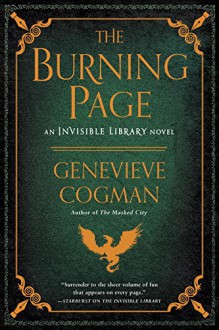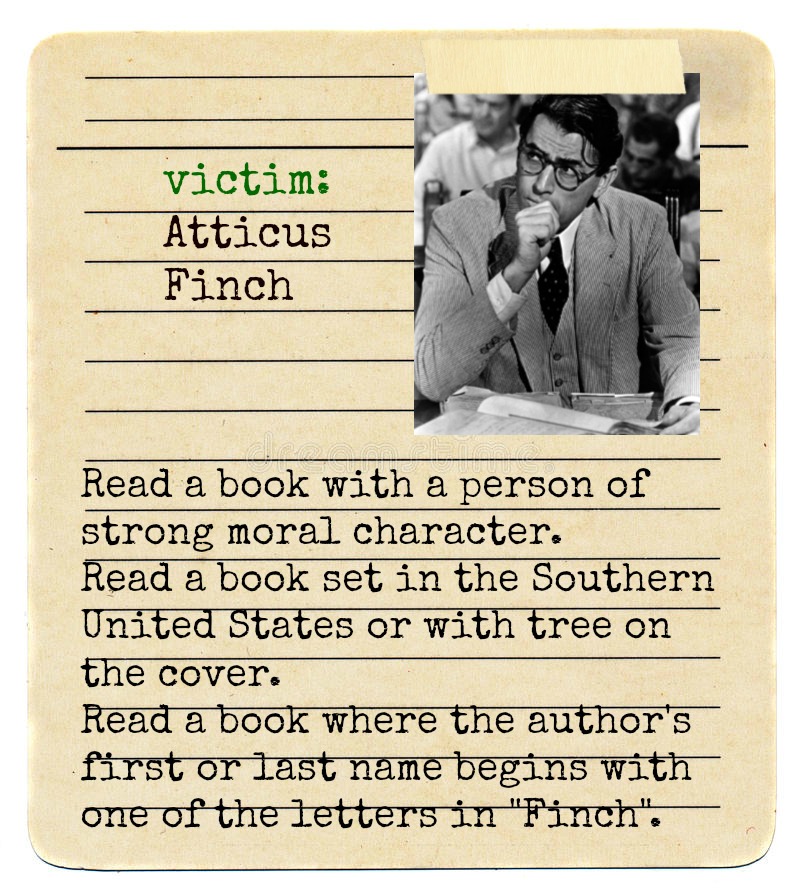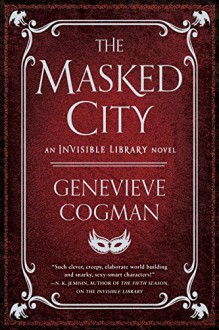

Die Reihe „The Invisible Library” von Genevieve Cogman ist das Ergebnis einer wilden Mischung literarischer Einflüsse. Die Idee einer interdimensionalen Bibliothek borgte sich die Autorin von Terry Pratchett, Neil Gaiman und aus dem französischen Rollenspiel „In Nomine Satanis“. Die Magie ist von Ursula K. Le Guins „Erdsee“-Saga inspiriert, die Drachen durch die chinesische Mythologie und „Sherlock Holmes“ prägte sie ebenfalls. Das Konzept von Ordnung und Chaos hingegen ist eine Exploration dessen, was ihr in Michael Moorcocks „Elric“-Romanen begegnete. Das Ranking, das die Unsichtbare Bibliothek verwendet, um alternative Welten hinsichtlich Ordnung oder Chaos zu klassifizieren, spielt im zweiten Band „The Masked City“ eine entscheidende Rolle.
Endlich fand Irene eine Heimat. Sie ist nun dauerhaft in einem alternativen viktorianischen London als Agentin der Unsichtbaren Bibliothek stationiert. Keine Reisen durch die Welten mehr, ausschließlich Aufträge mit überschaubarem Risiko. Irene ist zufrieden. Doch die Idylle ihres neuen Lebens währt nur kurz. Ihr Lehrling Kai wird von den Fae entführt. Kais Onkel, der König der Drachen, wertet den Zwischenfall als offene Kriegserklärung. Wutschnaubend beauftragt er Irene, seinen Neffen zurückzubringen. Sollte sie scheitern, wird er die Welt, aus der Kai verschleppt wurde, restlos zerstören, um ein Exempel zu statuieren. Irene findet heraus, dass Kai in eine hochgradig vom Chaos infizierte Welt gebracht wurde, in ein alternatives Venedig der Masken und Illusionen, in der der Karneval niemals endet. Irgendwie muss sie dort hingelangen, obwohl die zur Neutralität verpflichtete Bibliothek es Mitgliedern untersagt, sich in das Ringen der Mächte der Ordnung und des Chaos einzumischen. Auf sich allein gestellt bricht Irene zu einer verzweifelten Rettungsmission auf, die alles aufs Spiel setzt: Kai, ihren Job und ihr Leben.
Ich werde mich der weitreichenden Begeisterung für „The Invisible Library“ vermutlich niemals anschließen können. Ich fürchte, es wird immer Punkte geben, an denen ich mich störe, obwohl die Romane durchaus unterhaltsam sind. Im zweiten Band „The Masked City“ konnte ich meine Kritik am grundlegenden Konzept der Unsichtbaren Bibliothek zwar vernachlässigen, weil sie lediglich am Rande auftritt und die Protagonistin Irene dieses Mal keinen Auftrag erfüllen muss, aber dafür wurde ich mit Genevieve Cogmans Wechselspiel zwischen Ordnung und Chaos konfrontiert, mit dem ich einfach nicht warm wurde. Alle Welten ihres Multiversums befinden sich irgendwo auf einer gedachten Skala zwischen der Ordnung der Drachen und dem Chaos der Fae. Drachen und Fae sind dementsprechend Gegenspieler, in deren Mitte sich die Bibliothek nach Kräften bemüht, die Schweiz zu imitieren. „The Masked City“ soll einen tieferen Einblick in ihre Rivalität gewähren, für mich warf diese Fortsetzung allerdings eher neue Fragen auf, statt sie zu beantworten. Ich habe keine genaue Vorstellung davon, was Ordnung und Chaos für Cogman bedeuten. Welche Elemente zählen zur Ordnung, welche zum Chaos? Welche Auswirkungen hat die Anwesenheit der Fae auf eine Welt, beeinflussen sie sie absichtlich und wenn ja, heißt das, dass sie aus dem Nichts zum Beispiel auch fiktive Fabelwesen auftauchen lassen können? Ich finde die Entwürfe beider Extreme bisher äußerst schwammig und habe Schwierigkeiten, mit ihnen konkrete Merkmale zu verknüpfen. Das alternative Venedig, in das Irenes Lehrling Kai entführt wird, hätte mir helfen sollen, zumindest das Chaos besser zu verstehen, da Cogman sich in dessen Darstellung jedoch lieblos auf Flüsse, Gondeln und Masken beschränkte und keine greifbare, individuelle Atmosphäre heraufbeschwor, funktionierte das leider nicht. Ich kann nicht nachvollziehen, wieso sie so zugeknöpft blieb, schließlich lädt ein verzaubertes Venedig nachdrücklich dazu ein, in Beschreibungen des Settings zu schwelgen. Vielleicht lag ihre Zurückhaltung an Irene, die das Chaos prinzipiell unterkühlt betrachtet und sich aufgrund ihrer pragmatischen Art nicht an seinen Wundern erfreuen kann. Ist es schlimm, dass ich sie nicht besonders mag? Die Protagonistin ist mir zu verkopft, zu verbissen und versucht meinem Empfinden nach allzu angestrengt, sich zu beweisen. Sie hat keinen Humor und ist enervierend pessimistisch. Ich stelle ihr Talent als Agentin ernsthaft in Frage, weil das Gelingen ihrer Pläne stets von einer unverschämten Portion Glück abhängt, was ihren Status als Junior-Bibliothekarin für mich noch rätselhafter gestaltet, als er ohnehin ist. Auf welcher Stufe der Hierarchie der Bibliothek steht Irene eigentlich und welche Befugnisse und Verpflichtungen gehen damit einher? Da „The Masked City“ die Strukturen der Bibliothek maximal streift, fühlte ich mich am Ende der Lektüre bedauerlicherweise nicht schlauer als vorher.
Als Einzel-Abenteuer ist „The Masked City“ fraglos aufregend und actionreich. Das Buch liest sich flüssig und unterhielt mich angemessen. Für mich besteht das Problem darin, dass Genevieve Cogman meinem Empfinden nach zu zaghaft daran arbeitet, das allgemeine Worldbuilding von „The Invisible Library“ voranzutreiben. Natürlich handelt es sich erst um den zweiten Band, doch ein gewisses Informationskontinuum, das die präsentierten Ideen in einen größeren Kontext setzt, kann man sicher selbst so früh in einer Reihe erwarten. Ich habe den Eindruck, dass Cogman permanent den Fuß auf der Bremse hat, weil sie sich fürchtet, Gesetzmäßigkeiten zu formulieren, die spätere Handlungslinien einengen könnten. Obwohl ich verstehe, dass sie sich nicht selbst beschneiden möchte, wird sie mit dieser Unverbindlichkeit bei mir irgendwann an eine Wand stoßen. Ich bin bereit, es mit dem dritten Band „The Burning Page“ zu versuchen, aber wenn sie nicht bald den Mut entwickelt, sich festzulegen, muss ich mich fragen, ob es sich lohnt, die Reihe weiterzuverfolgen.

 Log in with Facebook
Log in with Facebook 
















